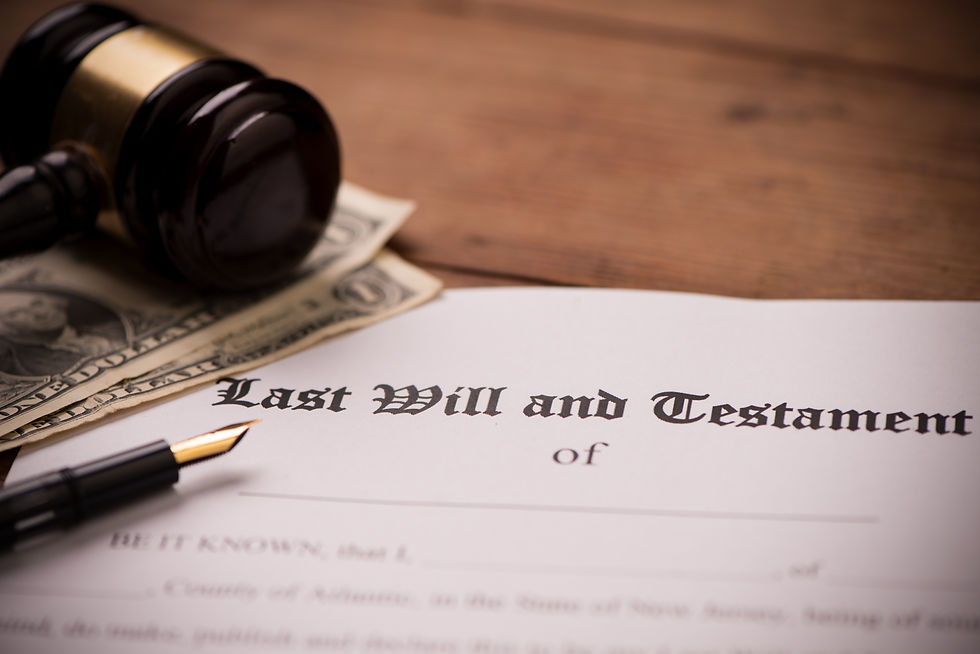U.S. Tax Court Denies Farmers’ 100% Charitable Deduction for Conservation Easement
- Sarah Everhart
- Aug 16, 2017
- 3 min read
Updated: Jul 23, 2020
By Sarah Everhart
The article is not a substitute for legal advice. See here for the site’s reposting policy.
The U.S. Tax Court’s decision of August 7, 2017, Rutkoske, et al. v. Commissioner of Internal Revenue, 149 T.C. No. 6 (2017), is one that all farmers considering selling a conservation easement need to understand.
The decision involved a farming family who were members of a limited liability company (LLC) established to own farmland. In 2009, the farm family sold a conservation easement on 355 acres of farmland to a land trust organization and later the same year sold the farmland at issue to an unrelated third party. This resulted in the farmers receiving income from the sale of the easement and income from the sale of the farmland in the same year. On their income tax returns, the farmers classified themselves as “qualified farmers” as defined by the Internal Revenue Code, eligible to deduct 100% of their contribution base for a conservation contribution. The issue in the case was whether the farmers were “qualified farmers” able to take the full 100% charitable deduction.
Generally, an individual is allowed a deduction of 50% of their contribution base for a charitable conservation contribution (26 U.S. Code Section 170(b)(1)(E)(i)). An individual who is a “qualified farmer or rancher,” however, may deduct the value of the donation up to 100% of the contribution base (26 U.S. Code Section 170(b)(1)(E)(iv)). A “qualified farmer or rancher” is an individual whose gross income from the trade or business of farming is greater than 50% of their gross income for the taxable year ((26 U.S. Code Section 170(b)(1)(E)(v)).
Farming is narrowly defined in this context to include (A) cultivating the soil or raising or harvesting any agricultural or horticultural commodity (including animals) on a farm, (B) handling, drying, packing, grading or storing of any commodity in its unmanufactured state if the owner of the farm regularly produces more than one-half of the commodity so treated, and/or (C) planting, cultivating, caring for or cutting of trees or the preparation of trees for market (26 U.S. Code Section 2032A(e)(5). Therefore, a farmer trying to determine eligibility for taking the full 100% charitable deduction must consider the amount of his or her income derived from farming compared to total gross income to determine if the farming income is greater than 50% of the gross income for the tax year in question.
The farmers in Rutkoske argued that the income derived from the sale of the conservation easement and from the sale of the land constituted income derived from the trade or business of farming. They reasoned the proceeds from a sale of an asset used in the business of farming constitutes income from the business of farming. The Court disagreed, explaining it was confined to look to the income derived from the sale of agricultural products, not from the sale of the land on which agricultural products are grown. Although the Court acknowledged the farmers involved in the case were actively involved in farming both before and after the land in the question was sold and that the farmers used most of the proceeds derived from the sale in their continuing farming operations, because the proceeds from the sale of the easement and farmland was not farming income they were not “qualified farmers” who could take the 100% charitable deduction.
The Court also explained that if even it had agreed with the farmers’ reasoning, the farmers still would not have prevailed because the LLC which sold the property was not in the business of farming; it was in the business of leasing real estate. Therefore, the LLC’s income from the sale of the property which flowed to the farmers individually did not constitute income from the trade or business of farming.
Although the decision was issued at a preliminary stage of the case and a trial on land valuation may be forthcoming, farmers considering selling a conservation easement can learn a lot from the decision. Specifically, farmers intending to take advantage of a 100% charitable deduction must be strategic about the year in which they sell a conservation easement, especially if they plan to sell the eased land within the same tax year.




Comments